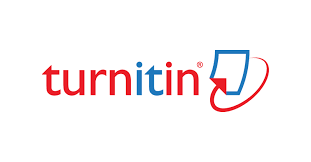The Politeness Requesting Principle Found in “Titanic” TV Mini Series
Main Article Content
I Komang Tris Prasetya Wahyudi Putra
I Gusti Ayu Mahatma Agung
The purpose of this study is to investigate the strategy used in the Titanic television series for making politeness requests. In the course of this research, a descriptive qualitative methodology was utilized. The Titanic television series, which was directed by Robert Lieberman and broadcast in 1996, served as the source of the data. The information was gathered by going on YouTube and watching episodes of the Titanic television series. The data were analyzed by applying the theory that Brown and Levinson had proposed (1987). The findings demonstrated that the characters utilized strategies of politeness in order to lessen the likelihood of a threat to their own self-image. The research uncovered four distinct forms of politeness: bald on record, bald off record, positive politeness, and negative politeness.
Adityo, A. (2022). The Use of Movie to Enhance Undergraduate Students’ Listening Comprehension Ability. JETLEE: Journal of English Language Teaching, Linguistics, and Literature, 2(2). DOI: https://doi.org/10.47766/jetlee.v2i2.432
Ayunigtyas, D.I. (2012). Politeness Strategy in Request: Does It Always Work Well? Prosodi: Jurnal Ilmu Bahasa dan Sastra, 6(2), 1-10. DOI: https://doi.org/10.21107/prosodi.v6i2.54
Brown, P. & Levinson, S.C. 1987. Politeness: Some Universals in Language Usage. Cambridge: Cambridge University Press.
Deuze, M., & McQuail, D. (2020). McQuail's media and mass communication theory. McQuail's Media and Mass Communication Theory, 1-688. http://digital.casalini.it/9781473943551
Elsaesser, T., Buckland, W., Polan, D., & Jeong, S. H. (2021). The mind-game film. In The Mind-Game Film (pp. 89-112). Routledge. DOI: https://doi.org/10.4324/9780203879559
Erlidawati, E., & Rahmah, S. (2022). The Educational Values in Fairy Tale Cartoon Film. JETLEE: Journal of English Language Teaching, Linguistics, and Literature, 2(1). DOI: https://doi.org/10.47766/jetlee.v2i1.203
Indahsari, V. A. & Surjowati, R. (2021). Politeness Strategies Used in Mata Natjwa Program; Cipta kerja: Mana Fakta Mana Dusta. Bright: A Journal of English Language Teaching, Linguistics and Literature, 4(1). 1-11. DOI: https://doi.org/10.29100/bright.v4i1.1826
Kabooha, R. H. (2016). Using Movies in EFL Classrooms: A Study Conducted at the English Language Institute (ELI), King Abdul-Aziz University. English Language Teaching, 9(3), 248-267. DOI: 10.5539/elt.v9n3p248
Kristanto, J.B. (2007). Katalog Film Indonesia. Jakarta: Penerbit Nalar.
Mikos, L. (2016). Digital media platforms and the use of TV content: Binge watching and video-on-demand in Germany. Media and Communication, 4(3), 154-161. DOI: https://doi.org/10.17645/mac.v4i3.542
Polkinghorne, D. E. (2005). Language and meaning: Data collection in qualitative research. Journal of counseling psychology, 52(2), 137. DOI: https://doi.org/10.1037/0022-0167.52.2.137
Sari, R.P., Raja, P., & Sudirman, S. (2015). Politeness and Request
Strategies in Act of Request by EFL Students. U-JET: Unila Journal of English Teaching, 4(7), 1-10. http://jurnal.fkip.unila.ac.id/index.php/123/article/view/10038
Savignon, S. J. (2018). Communicative Competence. The TESOL encyclopedia of English language teaching, 1-7. https://doi.org/10.1002/9781118784235.eelt0047
Tyner, K. (2014). Literacy in a digital world: Teaching and learning in the age of information. Routledge. https://doi.org/10.4324/9781410601971
Yule, G. (1996). Pragmatics. Oxford: Oxford University Press.
Yuzar, E. (2020). Incorporating Communicative Competence in Assessment and English Language Teaching in Multilingual Settings. REiLA: Journal of Research and Innovation in Language, 2(1), 8-13. DOI: https://doi.org/10.31849/reila.v2i1.3864
Yuzar, E., & Rahmiaty, F. R. (2022). “Am I being Rude”: Exploring Indonesian Students’intercultural Communicative Competence In Inner Circle Countries. Lingual: Journal of Language and Culture, 13(1), 18-27. DOI: https://doi.org/10.24843/LJLC.2022.v13.i01.p02




